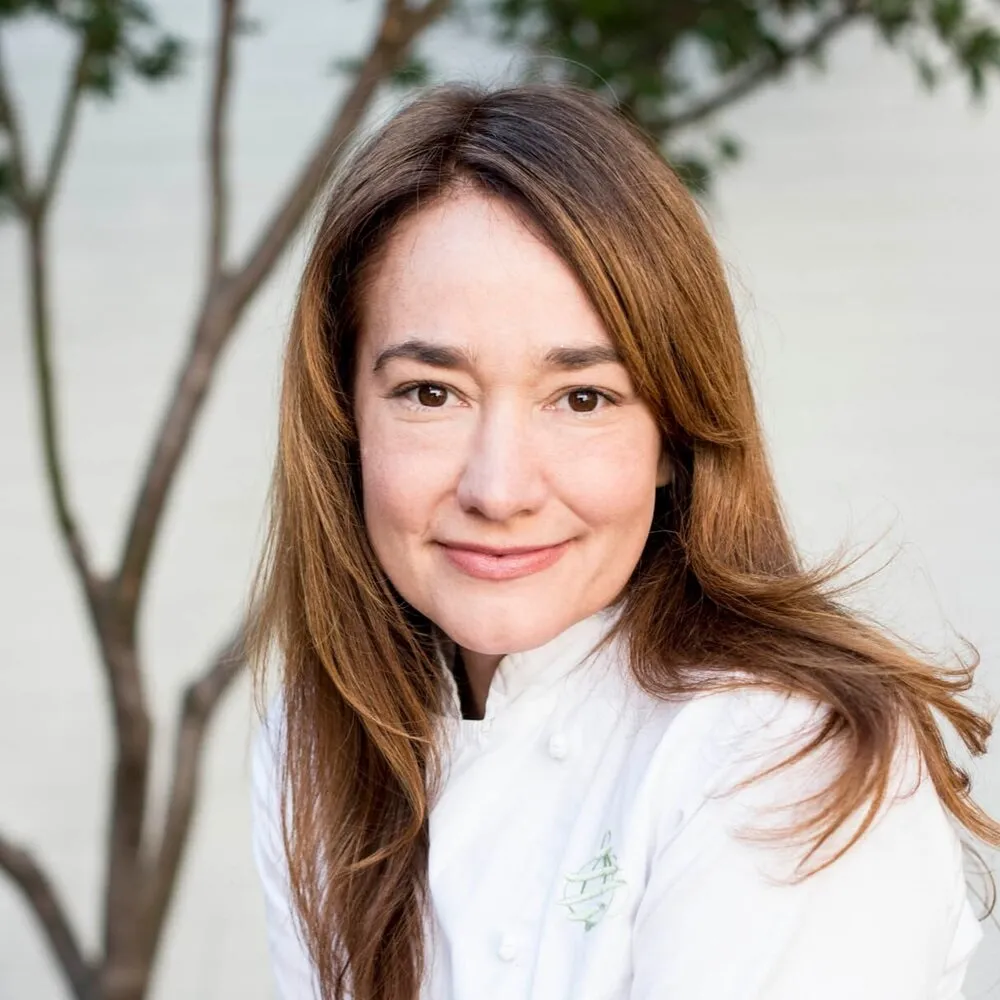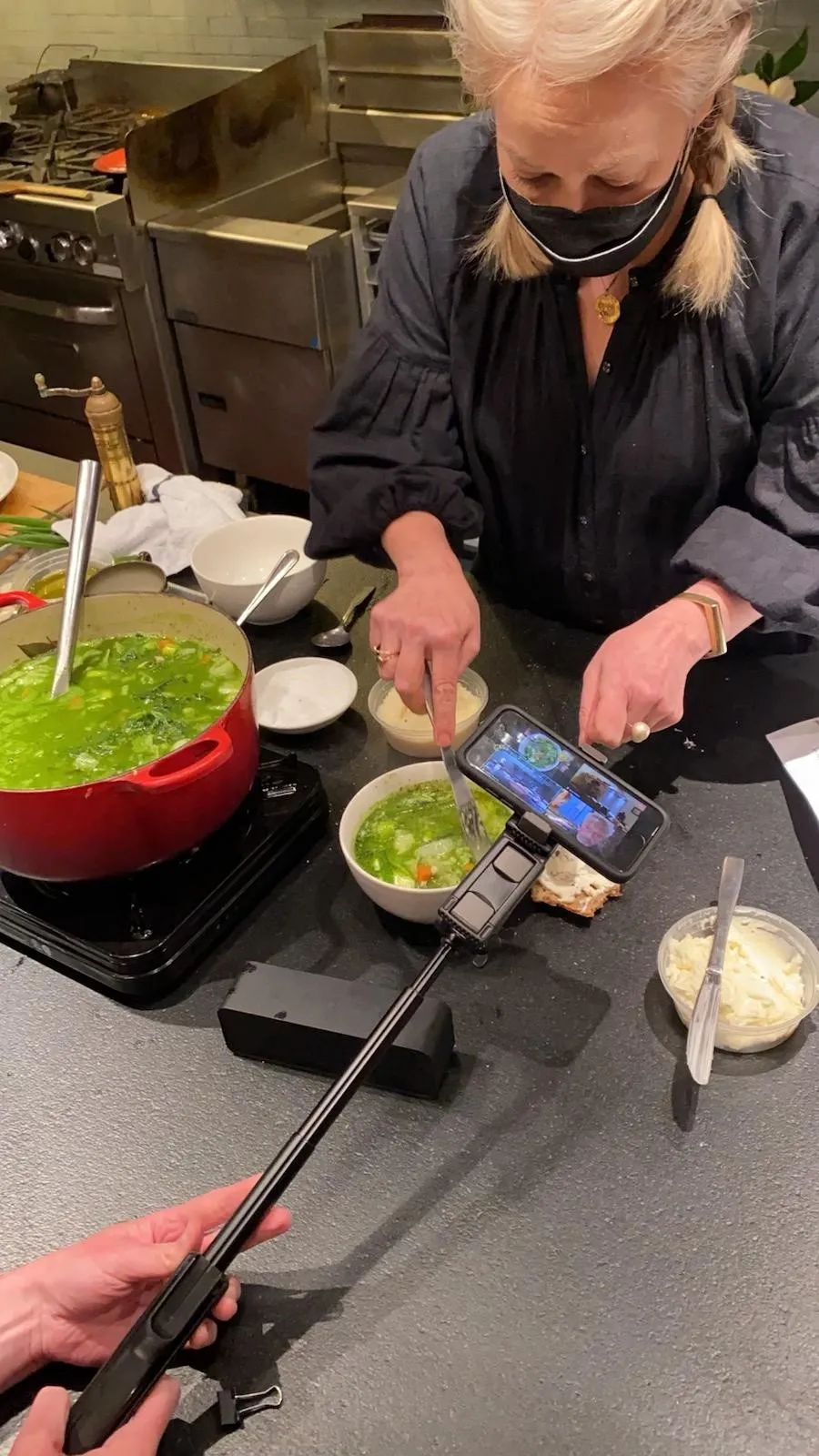This Women’s History Month, No Kid Hungry’s Adrienne Carter and Paige Brown sat down with Andrea Reusing to discuss her experience as a woman in the restaurant industry and her connection to the No Kid Hungry Campaign.
Reusing, an award-winning chef, author and leader in the sustainable agriculture movement, helped to launch the Durham FEAST Initiative in North Carolina, keeping restaurants open to prepare meals for kids and families during the pandemic.

What’s your earliest memory of cooking?
Like so many people, it’s cooking with my grandmother. I was five years old and we would make apple dumplings. She would peel and core an apple, then stuff it with brown sugar, butter, cinnamon and nutmeg, wrap it in pastry and bake it until it's super soft and golden. She would put one in a bowl and pour a ton of cream on top.
How did you become a chef?
When I was first in college, I worked as a cocktail waitress in clubs until I couldn't take the harassment anymore. I loved to cook and started working at a few neighborhood restaurants as a line cook.
Then I met my husband who lived in North Carolina. I wanted to see what it was like outside New York City, so I decided to move here, where I started a catering company out of our home kitchen. Eventually, I opened Lantern, my own restaurant, almost 20 years ago.
In your path, what challenges did you encounter as a woman?
When I was pregnant with my first child, I decided to apply for a loan for a second business. During the application process, one of the bankers asked "How many more children are you going to have?” It was like the bank saying “I don't think you should really have more children if you're going to open a second restaurant.”
People say outrageous things to you all the time. As women, we all experience that. But as the owner of my businesses, I opted out of working in a world in which I didn't have some control over who I had to see, talk to or answer to.
Did you have any women in the industry who acted as mentors to you?
The person that hired me for my first kitchen job was a chef named Ellen Smith. She liked hiring people that had never worked in a kitchen before and taught me how to shop at the market and how to make food cost work.
You've been doing a ton of work during the pandemic feeding kids, especially through the Durham FEAST initiative. Can you talk a little bit about that?

Right after COVID, we closed the restaurant and laid almost the whole front-of-house staff off. But because we have a lot of folks here that wouldn't qualify for unemployment, we really had to get back to cooking quickly.
We saw it as a real opportunity to feed people who actually would benefit from high-quality food the most. It's fun feeding people that eat out as a sport, but it's a thrill to feed those that love good food and don't have enough resources to access it all the time.
We, along with Dr. Linden Thayer from Food Insight Group, the Durham Public Schools Foundation, and great school nutrition director, Jim Keegan, pulled together a concept that would allow school nutrition workers to keep feeding kids and also allow restaurants to step in and fill some gaps for scratch-cooked meals.
It was a group of 27 restaurants, mostly Black, Latino, and/or women-owned restaurants, caterers, and non-traditional foodservice outlets. It was incredible. By the end of the program, we were serving about 75,000 meals a week.
The project morphed into EAT NC, and we're doing similar projects now in three different school districts. As we go forward, we're going to have to reopen our restaurant at some point, but we're also going to keep working in schools.
What would you say to other chefs who are looking to find ways to support their communities, or who are thinking about partnering with No Kid Hungry?
I would say that No Kid Hungry is incredibly chef-friendly, they make it very easy to engage in whatever ways work best for you.
Hunger is often seen as a huge, intractable almost permanent problem, an issue so big that an individual's action isn't effective. Chefs are in a unique position to make it personal, to make the case that when a country allows its most vulnerable to go without enough food, it's very much a choice that together we need to turn around.
Stay tuned for more stories from impressive women like Chef Andrea Reusing during Women History Month.
Read our previous stories from Youth Ambassador Libby Israel and No Kid Hungry senior vice president Lisa Davis.
One more thing! In celebration of Women’s History Month, we built a playlist to inspire you, with songs curated by chefs who have conquered the kitchen and champion No Kid Hungry. Andrea Reusing participated in the creation of the list. Check out her “women-powered soundtrack for cooking at home with family and friends.”


